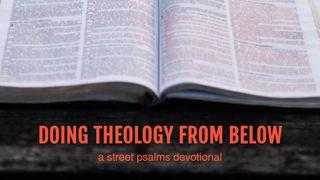Plan Info
James 3 - Anyone for Teaching?Sample

What is 'praise and cursing'?
The speech referred to throughout James 3 has little to do with accidentally talking too much at a dinner-party, or putting your foot in your mouth at work. It is not even about swearing. Verses 9-10 show that James is most concerned with the inappropriateness of praising God on Sunday and speaking unkindly to human beings Monday through Saturday.
To "praise" is to declare the worthiness of someone. When directed towards God, as here, praise usually refers to declaring the wonders of the Lord in song or word in the church service. This is how the same word is used throughout the book of Psalms, Israel’s book of praises.
To "curse" is not to cast a spell or to swear; it is to insult or denigrate someone with our words. We curse people whenever we speak to or about them in a way that disregards their status as “made in God’s likeness” (verse 3:9). Though flawed, human beings still possess the image of God (Genesis 1:26) and must be treated accordingly. To speak to others as if they are not made in God’s likeness is to be untrue to our own calling as members of God’s family. As James says emphatically at the end of verse 10, “This should not be.”
The final two verses insist that to praise God one minute and curse someone made in God’s image the next is unnatural, "Can both fresh water and salt water flow from the same spring? My brothers, can a fig tree bear olives, or a grapevine bear figs? Neither can a salt spring produce fresh water" (3:11-12).
The way I speak does not make me a Christian, any more than the fruit determines the type of tree. But it does reveal what sort of person I am. The logic of James is simple. The word has been "planted" in us (verse 1:21); now the fruit of that word must be seen to be growing in our lives and on our tongues. We are to love God and our neighbours with our words.
Ethics and the image of God
James 3:9 reminds us of a motivation for Christian behaviour that is sometimes neglected; the people around us have been made in the likeness of God. It is sometimes said that human beings lost their status as God’s image-bearers at the Fall. Now, men and women are only sinners, it is thought. The motivation for Christian ethics then—so it is thought—is simply grace: human beings deserve nothing but we should love them anyhow because that’s how God treats us in Christ.
But James follows Genesis 9:6 in insisting that even after the Fall, men and women still bear the divine likeness/image and should be treated with dignity accordingly. Grace remains a fundamental motivation for treating others well, but so does human dignity. The people around us—even the most arrogant and unlovely—are creatures made in the likeness of our common Creator.
Scripture
About this Plan

The role of teacher in the Christian community is a serious one.
We would like to thank Undeceptions for providing this plan. For more information, please visit: https://undeceptions.com/
Related Plans

James 5 - Lessons for Rich Oppressors, Patience in Suffering, and Keeping the Letter of James Alive

James 4 - Submit Yourself to God

Warning: 2 Peter

Praying Through the Letters of John with Hillsong Creative

Be the Branch: A Guide Through John 15

Four Radical Things Jesus Said About Money: A Look at Some of His Most Puzzling Parables

The Church has Left the Building

Awake and Attentive

Doing Theology From Below
